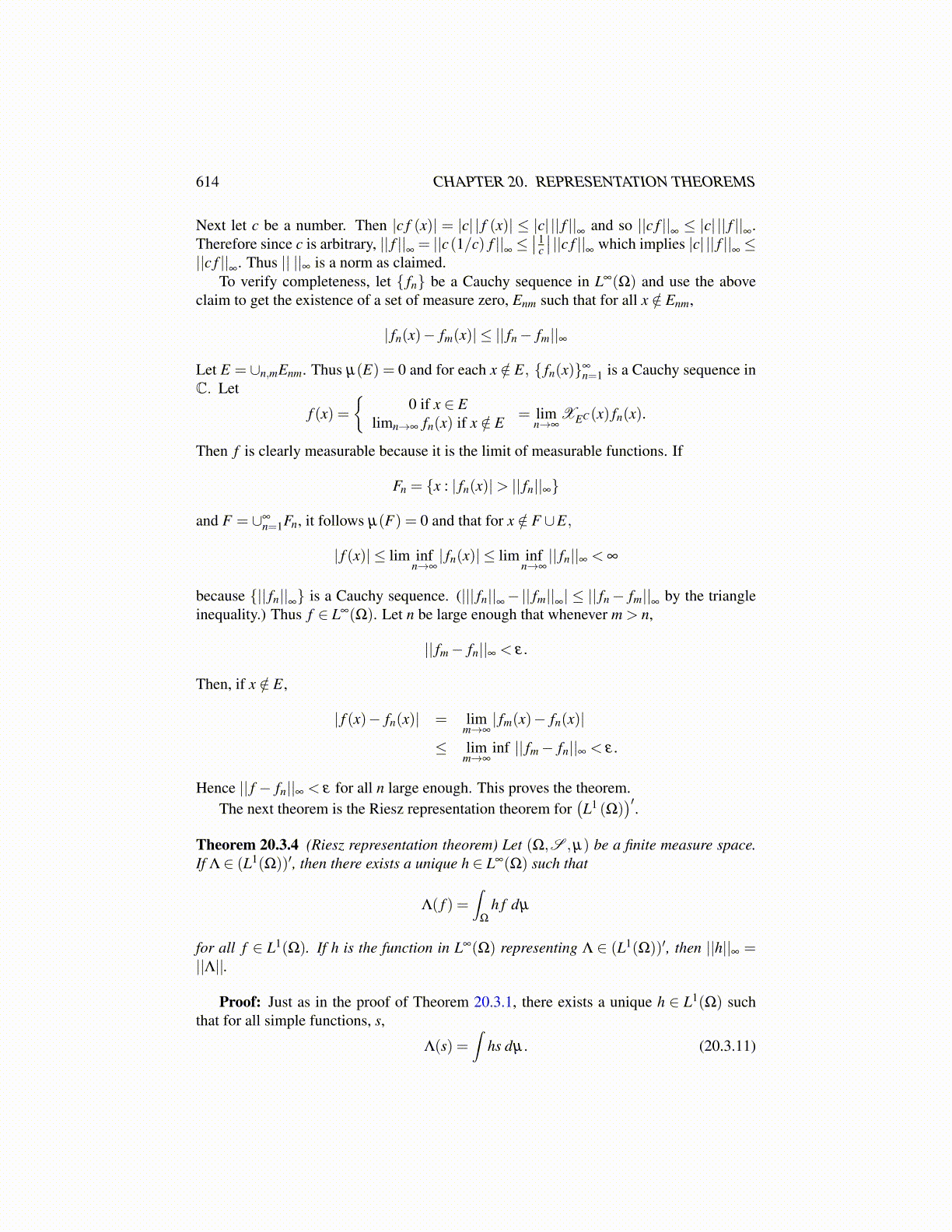
614 CHAPTER 20. REPRESENTATION THEOREMS
Next let c be a number. Then |c f (x)| = |c| | f (x)| ≤ |c| || f ||∞
and so ||c f ||∞≤ |c| || f ||
∞.
Therefore since c is arbitrary, || f ||∞= ||c(1/c) f ||
∞≤∣∣ 1
c
∣∣ ||c f ||∞
which implies |c| || f ||∞≤
||c f ||∞
. Thus || ||∞ is a norm as claimed.To verify completeness, let { fn} be a Cauchy sequence in L∞(Ω) and use the above
claim to get the existence of a set of measure zero, Enm such that for all x /∈ Enm,
| fn(x)− fm(x)| ≤ || fn− fm||∞
Let E = ∪n,mEnm. Thus µ(E) = 0 and for each x /∈ E, { fn(x)}∞n=1 is a Cauchy sequence in
C. Let
f (x) ={
0 if x ∈ Elimn→∞ fn(x) if x /∈ E = lim
n→∞XEC(x) fn(x).
Then f is clearly measurable because it is the limit of measurable functions. If
Fn = {x : | fn(x)|> || fn||∞}
and F = ∪∞n=1Fn, it follows µ(F) = 0 and that for x /∈ F ∪E,
| f (x)| ≤ lim infn→∞| fn(x)| ≤ lim inf
n→∞|| fn||∞ < ∞
because {|| fn||∞} is a Cauchy sequence. (||| fn||∞−|| fm||∞| ≤ || fn− fm||∞ by the triangleinequality.) Thus f ∈ L∞(Ω). Let n be large enough that whenever m > n,
|| fm− fn||∞ < ε .
Then, if x /∈ E,
| f (x)− fn(x)| = limm→∞| fm(x)− fn(x)|
≤ limm→∞
inf || fm− fn||∞ < ε .
Hence || f − fn||∞ < ε for all n large enough. This proves the theorem.The next theorem is the Riesz representation theorem for
(L1 (Ω)
)′.Theorem 20.3.4 (Riesz representation theorem) Let (Ω,S ,µ) be a finite measure space.If Λ ∈ (L1(Ω))′, then there exists a unique h ∈ L∞(Ω) such that
Λ( f ) =∫
Ω
h f dµ
for all f ∈ L1(Ω). If h is the function in L∞(Ω) representing Λ ∈ (L1(Ω))′, then ||h||∞ =||Λ||.
Proof: Just as in the proof of Theorem 20.3.1, there exists a unique h ∈ L1(Ω) suchthat for all simple functions, s,
Λ(s) =∫
hs dµ . (20.3.11)